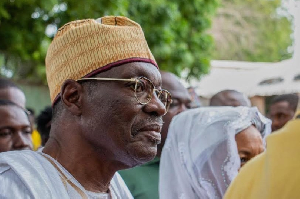Fishing, trade and agriculture are the backbone of the economy and an activity that needs to be formalized in the area.
Bakassi on the vast expanses of water is noted for fishing as one of its major activities. Sometimes, the adult fishermen are accompanied by young children, initiated at an early age into this business - sometimes at the expense of their schooling.
This fishing activity, mainly of fish and shrimp, undoubtedly constitutes the main activity in this area. Fisheries which has spread throughout the different districts of Bakassi are another illustration of the dominance of the sector.
It was difficult to get from the fishermen their real turnover figures, but it appears that the activity is essentially facing outward. "90% of anglers are foreigners: Nigerian, Ghanaian and nationals of Guinea Conakry", stated Dominic Yenai Asaah, the departmental delegate for Minepat for Ndian and Mundemba.
According to figures provided by the Minepat provincial delegation for Ndian, the quantity of fish caught in 2013 in the peninsula slightly rose to more than 1.2 tons. 833 995 kg of fresh fish and 318 702 kg of smoked fish were marketed.
According the same source up to about 80% of fresh fish they catch is exported. The rest of the production went to Idenau, Limbe and Douala for the to be smoked for export.
At the market at Idabato, while the activity of traders is mostly interrupted by heavy rain, a bag of shrimp (half a bag of 50kg rice), costs "thirty thousand"... But it was noted that, "it is thirty thousand Naira, so approximately one hundred thousand francs Cfa"!
"They sell in Nigeria where they can sell their products more cheaper and better," said Emmanuel Ngnié, sub-prefect of Kombo Abedimo. "A glass of garri which is sold at 100 F here costs 300 F there", he asserted.
It is a fact that indeed fishing and agriculture particularly the cultivation of cassava, remain a major contributor to the economy.
Infos Business of Monday, 17 November 2014
Source: Cameroon Tribune













